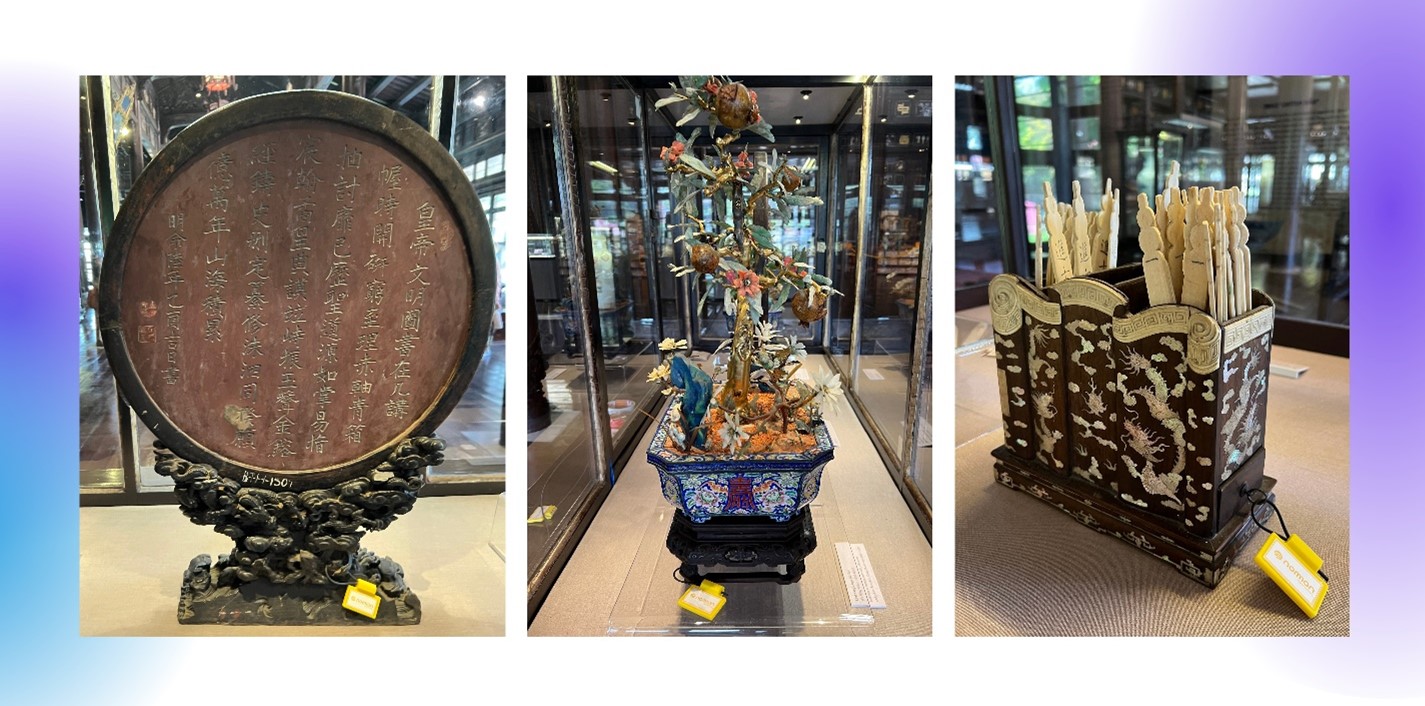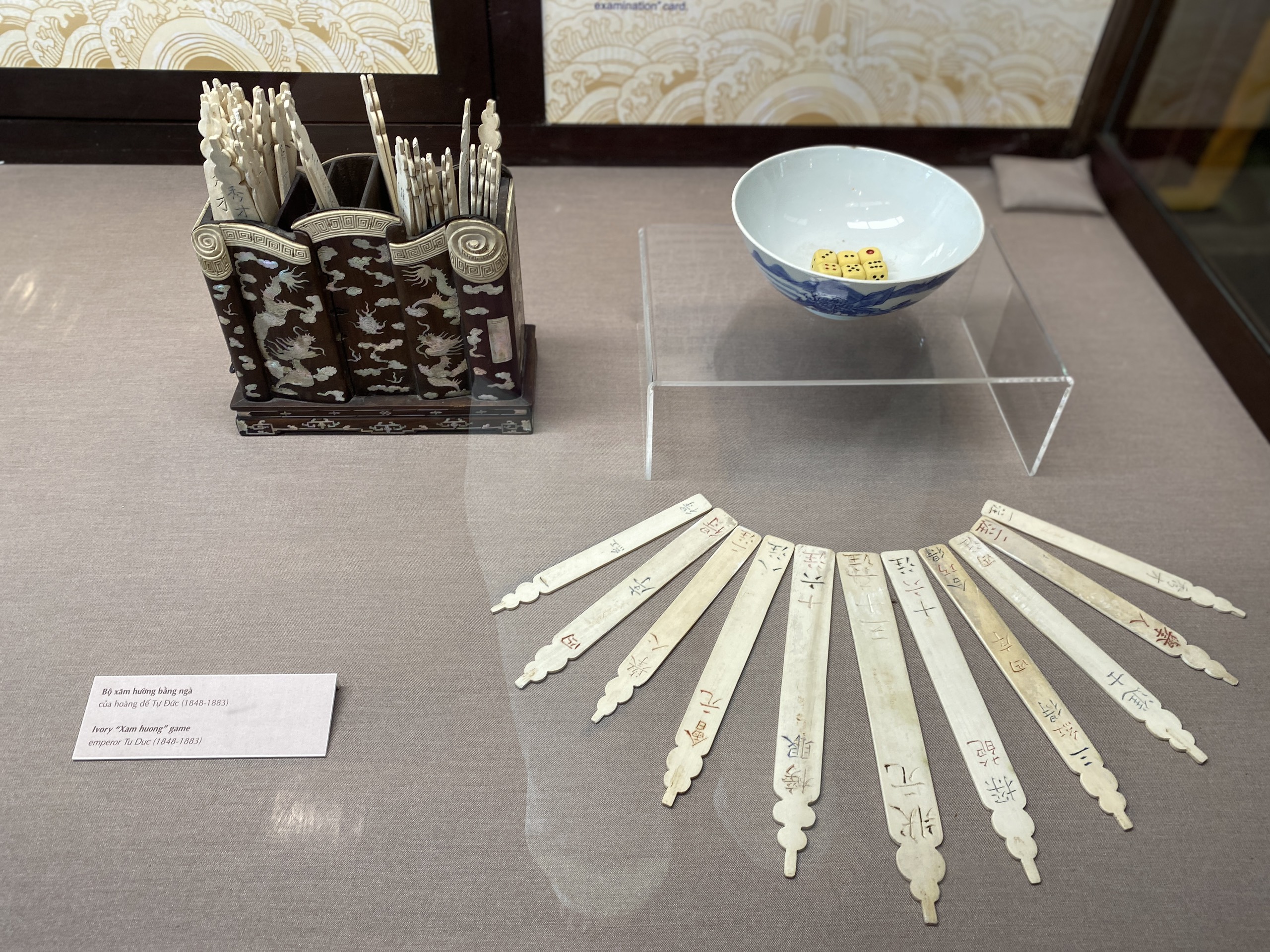Applying technological advancements in the management, preservation, and promotion of cultural heritage values, the Hue Monuments Conservation Center and the Hue Center of Information and Technology (HueCIT) have pioneered the integration of technology to digitally identify 10 Nguyen Dynasty artifacts at the Hue Museum of Royal Antiquities. These artifacts are embedded with NFC chips and uniquely identified using Phygital Labs' Nomion technology. Visitors can use their smartphones to interact with the Nomion NFC chips attached to the artifacts, providing multi-dimensional interactions with comprehensive information on the artifacts' history, origin, cultural significance, and 3D images.

Images of the digitally identified artifacts at the Hue Museum of Royal Antiquities
Unlike QR codes currently used for storing information, the Nomion NFC chip attached to the artifacts offers high data encryption, security, and forgery resistance, ensuring a unique 1-1 link between the physical and digital versions. Additionally, using blockchain technology, the digital version of the artifact provides proof of ownership and converts the real artifact into a digital asset.

First Digital Exhibition of Identified Nguyen Dynasty Artifacts
The selected artifacts for digital identification are exemplary and characteristic of the Nguyen Dynasty's kings and mandarins, including: thrones, palanquins, ceremonial footwear (used in daily life and rituals), gold and jade branches (used for interior decoration), and a set of "Xăm hường" (a recreational game).
"Phygital Labs' technology acts as a bridge, bringing artifacts currently preserved and displayed into the digital world, supporting digitization, preservation, and the promotion of the artifacts' value, as well as the heritage of the Nguyen Dynasty and Hue culture in general," shared Mr. Hoang Viet Trung, Director of the Hue Monuments Conservation Center.
Aiming to vigorously promote Vietnamese culture globally and leverage the economic potential of digital heritage, Phygital Labs has established the first digital cultural exhibition space on the metaverse at museehue.vn. Consequently, the digitally identified artifacts will also be displayed in the digital space, allowing users to explore and admire the detailed 360-degree view of the items and experience engaging historical stories in a realistic cultural setting.
Notably, this digital space has integrated Apple Vision Pro, pioneering the wave of Extended Reality (XR) technology led by Apple and Meta.
From here, the vision of the Hue Monuments Conservation Center and Phygital Labs will aim to provide metaverse museum tour services, promoting Vietnam through its heritage to global visitors, especially the more than 20 million people who own devices like Apple Vision Pro and Meta Quest worldwide. The Hue Monuments Conservation Center plans to continue developing content by scanning and photographing artifacts, creating digital museums with specific themes and timelines, and enabling global visitors to view and learn about the artifacts with vibrant layouts, colors, and sounds, similar to visiting a physical museum or exhibition.
"Through the immersive experience offered by the digital exhibition, we have additional opportunities to sell tickets and increase revenue from the digital customer base, which currently lacks engaging cultural and historical content. Additionally, the owning entity can sell certified replica artifacts to interested digital customers. By spreading the story of Vietnam's cultural history globally, we aim to contribute to the development of the cultural industry, which holds great potential but has not yet been fully realized, creating a completely new digital economy model," shared Mr. Nam Do, CTO of Phygital Labs.